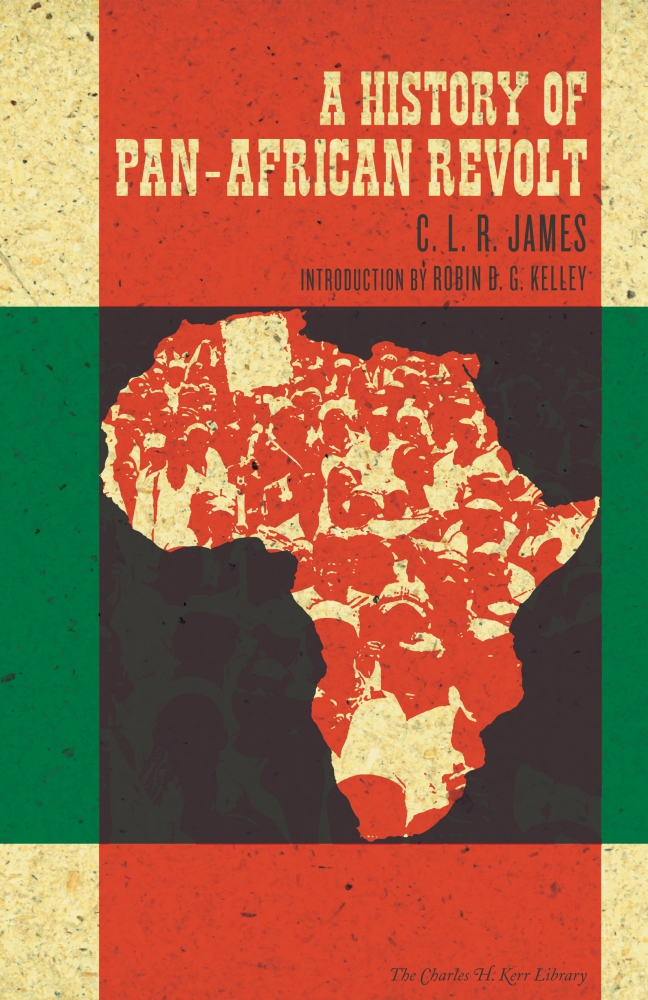Having just read Apetheker's account of slave revolts, I was a bit concerned that this much-shorter book would be redundant. I need not be. James concerns himself not just with revolts in the United States but with revolts throughout the world--and not just with revolts that involve the literally enslaved either. For James, a Marxist, African uprisings are tied in with class uprisings and with efforts to bring about a more equitable world. Reading such events in light of Marxist philosophy was interesting, even if in my opinion, it blinds James to certain other problems.
James starts his work with the slave uprising in San Domingo, the only one to result in the forging of an independent nation, in which the former enslaved people become the managers of the new regime. This was enabled, as James brings out, by a number of fortuitous historical forces, including the number of enslaved people versus the number of others on the island, and the ambivalent responses of the French colonizers, who were themselves at the time facing a movement of the masses toward "liberty" and the throwing off of an old monarchal regime.
Uprisings among the enslaved in the United States never benefitted from such advantages, which meant they were bound to fail. The numbers were never on the side of those who rebelled, even in pockets where the enslaved outnumbered others--those were simply pockets, with an outside world ready to reimpose the status quo. It is in James's analysis of pre-Civil War uprisings that he makes some claims about lower-class whites taking the side of the enslaved; other reading I've done suggests that was almost never the case. Rather, based on racial prejudice and a desire of lower-class whites to align themselves with higher-class whites, the lower classes almost always took to the cause of the higher classes against the enslaved, even to their own detriment. (A book by Glenn Feldman called The Disfranchisement Myth shows how lower-class whites in Alabama even voted in state constitutional changes that would prevent themselves from voting just to keep black people from voting, essentially disenfranchising themselves.)
Similar cynacism can be attached to the Civil War, which in this case C. L. R. James certainly does. Here, playing off economic and pragmatic concerns rather than idealistic ones, James claims, the North would eventually find that divorcing a chunk of the South's population from the conflict by offering freedom was the only way that it would be able to win. This in turn would set up the United States for much of what would follow the war, where a decade later, the gains black Americans made would be gradually pulled away, the need for their aid no longer of the highest value.
James next turns to uprisings in Africa and to the history of African colonization. He brings out, interestingly, how the slave trade had, at least, largely kept ancient African civilizations intact. As that drew to a close (mostly, he claims, for economic reasons rather than by the efforts of abolitionists), Europeans took to actually taking over the land on the continent and essentially "enslaving" the population through colonization. Chattel slavery was gone, but a new kind of economic slavery took its place that has resulted in the problems that the world has had ever since.
Another chapter focuses on Marcus Garvey, whose back to Africa movement, James is no fan of. However, he does credit Garvey with bringing to the fore the idea of that the effort among African-descended peoples to remove the injustices perpetrated on them must be a united, global one. James's discussion of the West Indies focuses on the way those nations have taken up Western ideals even after the end of colonization.
The edition I read included an epilogue with material on events that had happened since the book's original publication, some three extra decades, from the 1930s to the 1960s. James found hope in the throwing-off of colonizers among various African nations, though he noted that in many cases such revolutions really only perpetuated problems, insofar as dictators of a different ethnicity, with a dependence on the same economic structure wherein raw materials are provided to more developed economies, are no better than colonizers. Where the masses could find voice, however, there was hope. Tanzania was James's dreamland, a place where the leader was trying to establish true communism (not Soviet communism), wherein all Africans in the nation would contribute to the greater cause. He makes the happenings sound like the start of a utopia, one that alas history beyond the scope of the book has shown has been difficult to attain







No comments:
Post a Comment